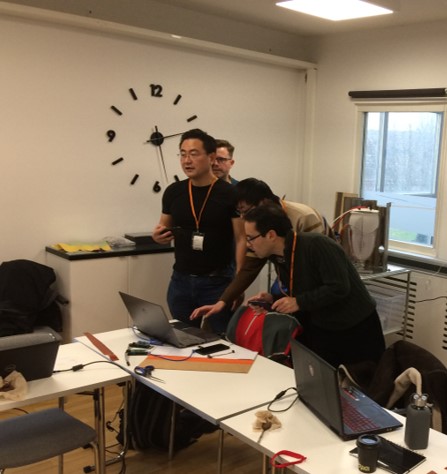New sensor systems to characterize effects the use of prosthetic sockets have on patient comfort and well-being are developed in the EU-funded project SocketSense led by the Royal Institute of Technology (KTH) in Stockholm. The sensor system consists of sensor elements, in the form of strips, integrated to the inner wall of the prosthetic socket and small electronic readout units placed on the outside of the socket.
A milestone was recently reached in the project where several sensor strips developed by the British company LussTech Ltd. and RISE where for the first time connected to the readout electronics developed by KTH, while measuring pressures inside a prosthetic socket test setup designed by Össur hf, a prosthetic provider company based in Iceland.
A workshop event was organized at RISE in Mölndal, Sweden to perform the milestone experiment but due to the international travel restrictions caused by the COVID-19 situation the workshop had to be conducted with key participants from Britain and Iceland connected digitally instead. A “camera man” filming the lab setup during the experiments made it possible for the British and Icelandic partners to support and contribute to the experiment.
“We managed to connect and measure a response from three sensor strips in parallel and I think we managed to communicate almost as efficiently as if the colleagues from LussTech and Össur were in the lab with us.”, says Valter Dejke the researcher responsible for the sensor tests at RISE.
This first test was only the beginning of a test campaign where the sensor response will be characterized in detail to understand the system performance. Later in the project tests on patients will be conducted using the sensor systems to map discomfort and effects caused by pressure and shear forces on the residual limb inside the prosthetic socket. These results will be an important contribution to the overall goal of improving the comfort of prosthetic sockets, and thereby ideally also improving the quality of life for the population of lower-limb amputees.
Other partners in the project are TWI Hellas (Greece), Teeside University (UK), South Tees Hospital (UK), Servicio Andaluz De Salud (Spain), and Nuromedia Gmbh (Germany). The project is funded by the European Commission under contract 825429.

